Related Research Articles

The Winter's Tale is a play by William Shakespeare originally published in the First Folio of 1623. Although it was grouped among the comedies, many modern editors have relabelled the play as one of Shakespeare's late romances. Some critics consider it to be one of Shakespeare's "problem plays" because the first three acts are filled with intense psychological drama, while the last two acts are comic and supply a happy ending.
The National Ballet of Canada is a Canadian ballet company that was founded in 1951 in Toronto, Ontario, with Celia Franca, the first artistic director. A company of 70 dancers with its own orchestra, the National Ballet has been led since 2022 by artistic director Hope Muir. Renowned for its diverse repertoire, the company performs traditional full-length classics, embraces contemporary work and encourages the creation of new ballets, as well as the development of Canadian dancers and choreographers.

Joby Talbot is a British composer. He has written for a wide variety of purposes, with a broad range of styles, including instrumental and vocal concert music, film and television scores, pop arrangements and works for dance. He is known, to sometimes disparate audiences, for quite different works.

Christopher Peter Wheeldon is an English international choreographer of contemporary ballet.
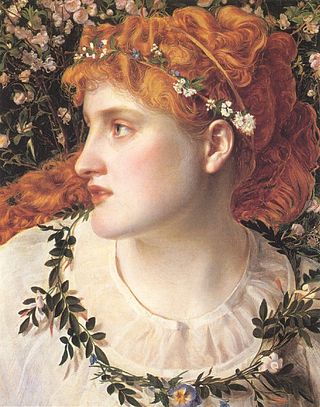
Perdita is one of the heroines of William Shakespeare's play The Winter's Tale. She is the daughter of Leontes, King of Sicily, and his wife Hermione.

Zenaida Yanowsky, Lady Keenlyside, is a French-born Spanish ballet dancer and a former principal dancer with the Royal Ballet in London.
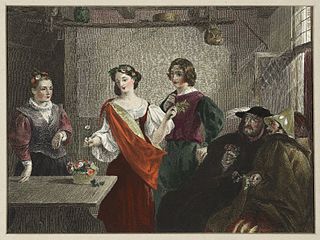
Florizel is a fictional character in Shakespeare's The Winter's Tale.
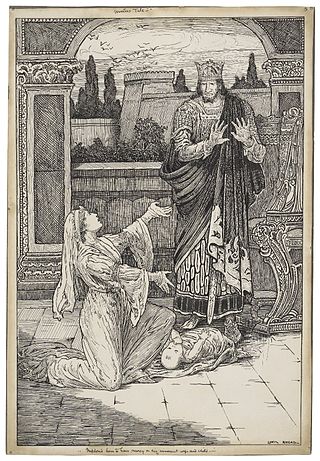
King Leontes is a fictional character in Shakespeare's play The Winter's Tale. He is the father of Mamillius and husband to Queen Hermione. He becomes obsessed with the belief that his wife has been having an affair with Polixenes, his childhood friend and King of Bohemia. Because of this, he tries to have his friend poisoned, has his wife imprisoned, and orders his infant daughter to be cast out. The daughter, Perdita, survives nonetheless when she is discovered in her basket on the coast of Bohemia by shepherds who adopt and raise her. His young son dies of grief at his mother's plight, and Hermione faints on hearing the news and is reported dead. Leontes comes to understand his faults, and is filled with remorse for his ill-treatment of his Queen. At the end of the play, he is reunited with daughter and his wife, who returns from death in the play's mysterious finale.
Edward Watson MBE is a British ballet dancer. He is a retired principal dancer and currently a coach with the Royal Ballet in London.
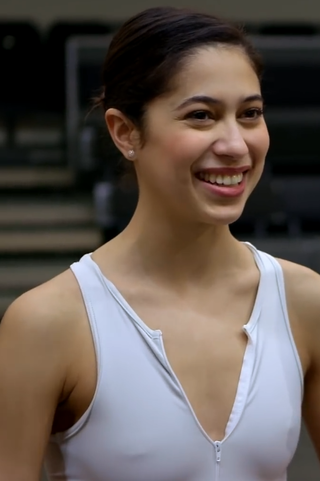
Beatriz Eugenia Stix-Brunell is an American ballet dancer. Her career started with Morphoses when she was 14. She joined the Royal Ballet in 2010, was promoted to first soloist in 2016, and retired in 2021.
Polyphonia is a one-act ballet choreographed by Christopher Wheeldon to music by György Ligeti, costumes designed by Holly Hynes, and was created for the New York City Ballet. It premiered on January 4, 2001 at the New York State Theater. It is regarded as Wheeldon's breakthrough, and won the Laurence Olivier Award for Best New Dance Production in 2003.

Steven McRae is an Australian ballet dancer and tap dancer. He is a principal dancer with the Royal Ballet, London.

Liam Scarlett was a British choreographer who was an artist in residence with The Royal Ballet and artistic associate with Queensland Ballet. He also choreographed new works for Ballet Black, Miami City Ballet, Norwegian National Ballet, the BalletBoyz, English National Ballet, San Francisco Ballet, American Ballet Theatre, Royal New Zealand Ballet, Atlanta Ballet, Polish National Ballet, and the Royal Ballet School.

The Winter's Tale is a 1910 American silent short drama produced by Thanhouser Company. The plot is an adaptation of The Winter's Tale by William Shakespeare and requires fore-knowledge of the plot in order to understand the condensed one reel work. The film focuses on the conflict arising from two Kings, one of Bohemia and one of Sicily, during a meeting. Queen Hermione enrages her jealous husband, Leontes, by entertaining Polixenes. Leontes decides to kill him with poison, but the plan is foiled by the courtier tasked with the assassination. For this, Leontes imprisons his wife. Hermione gives birth to a daughter and Leontes orders the baby to die out in the wilderness. Hermione is then brought before the court and apparently dies after interrogation. Fifteen years pass and Polixenes confronts and then secretly follows his son, appearing as he declares his intention to marry a shepherdess. The two lovers seek protection with Leontes, the King of Sicily. Mourning and repentant for his past actions, Leontes learns the shepherdess is his daughter and blesses the marriage of the lovers. The royal party goes to see a statue of the late queen Hermoine which is revealed to be alive. The cast includes Anna Rosemond, Frank H. Crane and Martin Faust, but the directorial and production credits for the film are unknown. The production was a success for the Thanhouser Company and the film was met with positive reception following its May 27, 1910 release. The film survives in the Library of Congress, but it is missing the final scene of the production. The surviving print suffers from significant deterioration.
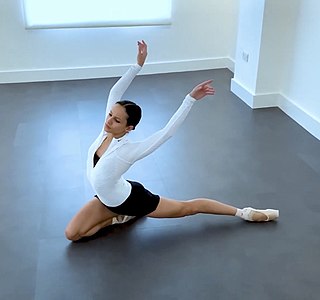
Francesca Hayward is a Kenyan-born British ballet dancer and actress. She is a principal dancer in the Royal Ballet at Covent Garden in London. In 2019, she starred as Victoria the White Cat in the musical film Cats, an adaptation of the stage musical of the same name.
Wintermärchen is an opera by Philippe Boesmans to a libretto by Luc Bondy and Marie-Louise Bischofberger after Shakespeare's The Winter's Tale. It was premiered on 10 December 1999 at La Monnaie in Brussels. The German premiere followed in 2001 at the Staatstheater Braunschweig.
The Winter's Tale is an opera in three acts by Ryan Wigglesworth. The libretto is by the composer, based on the play of the same name by William Shakespeare. The opera, in a production directed by Rory Kinnear, and conducted by the composer, was premiered at the English National Opera on 27 February 2017.
Corybantic Games is a ballet choreographed by Christopher Wheeldon to Bernstein's Serenade after Plato's "Symposium", with costumes designed by Erdem Moralıoğlu and sets designed by Jean-Marc Puissant. It premiered on 15 March 2018 at the Royal Opera House, danced by The Royal Ballet.
Reece Clarke is a Scottish ballet dancer. He joined the Royal Ballet in 2013, and was promoted to principal dancer in 2022.
Jean-Marc Puissant is a stage and costume designer. curator and consultant for live arts and exhibitions. Based in London, Puissant collaborates with international brands, directors, choreographers and curators in the UK, USA, Europe, Australia and Japan.
References
- ↑ "The Winter's Tale". Royal Opera House. Royal Opera House. Retrieved 3 June 2014.
- ↑ "The Winter's Tale". National Ballet of Canada. Archived from the original on 2 November 2015.
- ↑ William W. Lawrence, Shakespeare's Problem Comedies (New York: Macmillan, 1933), pp. 9-13.
- ↑ Judith Mackrell, "Royal Ballet: The Winter's Tale, review: A Game-Changer for Wheeldon', The Guardian (London). Retrieved 3 June 2014.
- ↑ Clement Crisp, "The Winter's Tale, Roya Opera House, London, review," Financial Times (London). Retrieved 3 June 2014.
- ↑ Luke Jennings, "The Winter's Tale, review: A Ballet to Keep," The Guardian (London), 12 April 2014. Retrieved 13 February 2016.
- ↑ "The Royal Ballet's Lauren Cuthbertson on Her Quarantine Routine and the Upcoming Stream of "The Winter's Tale"". Pointe Magazine. 29 April 2020.
